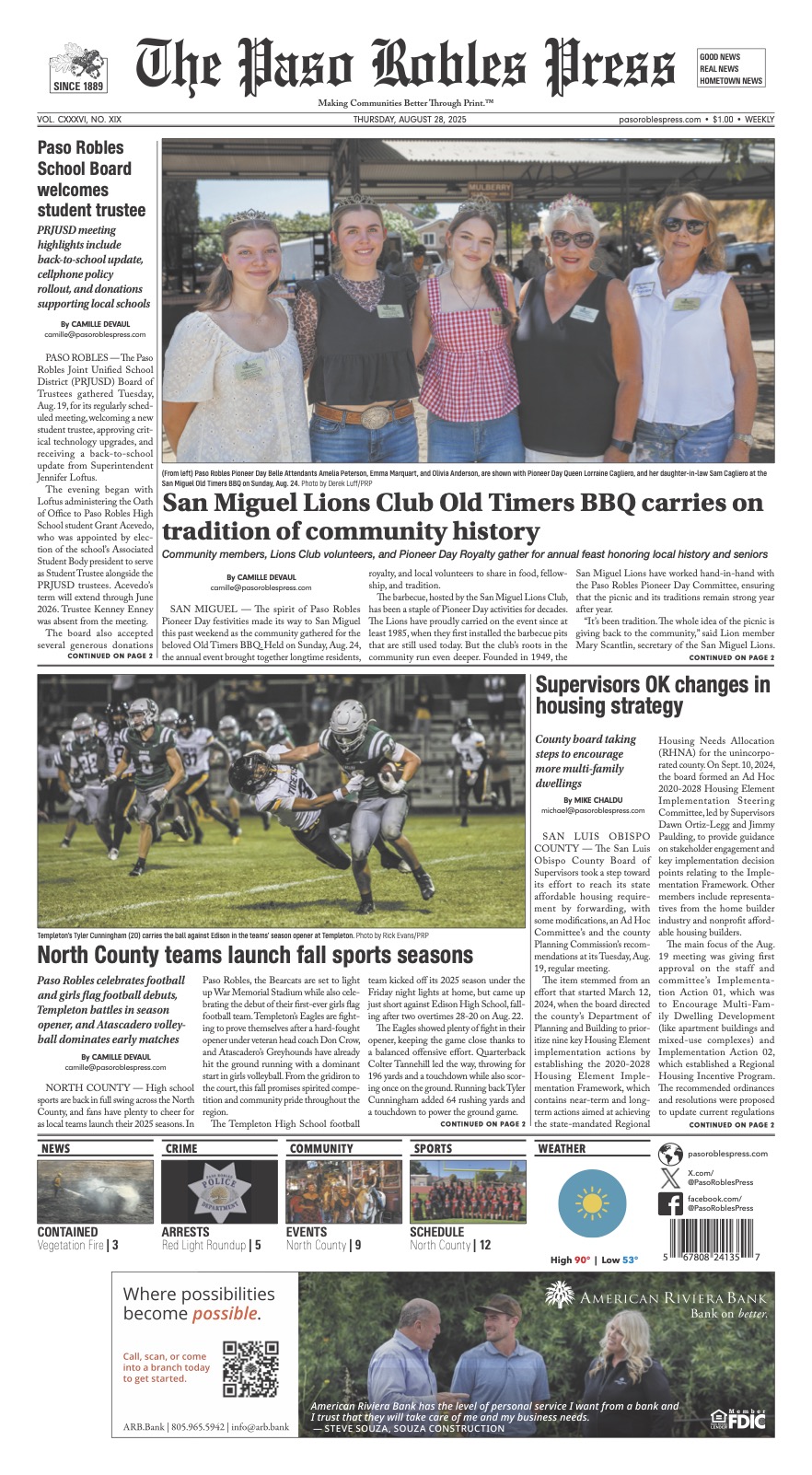Chaos, abuse and emotional trauma should have no part of a child’s upbringing, yet for many youths this is their daily reality.
CASA — Court Appointed Special Advocates — of San Luis Obispo County offers an effective way to help kids who are suffering when the need is urgent. In its 25th year, this nonprofit organization empowers abused and neglected children and teens so that their voices may be heard in juvenile court and beyond.
“We are looking for people who are non-judgmental and can build a relationship with a child or young adult and will be objective in providing insight and recommendations to the juvenile court,” said Cathy Orton, CASA Resource Development Director.
For children who are displaced by family trauma, foster households can provide surrogate care when extended family is unavailable. Unfortunately, since these dependents of the court cannot always be sheltered under the same roof, the challenge is even more critical to establish healthy family relationships for children to cope and thrive. CASA volunteer advocates are assigned to children, ages newborn to 18, while volunteer mentors assist young adults, 18 to 21, all of whom remain under court jurisdiction.
In San Luis Obispo County, a typical waitlist of about 300 children and 500 children under the jurisdiction of the court at any given time in the county makes for a challenge.
“Up to 40 percent of teens aging out of foster care at 18 are homeless within 18 months of leaving care,” Cathy said. “For youths who can stay in what is called ‘extended foster care’ (though not residing in a foster home), those rates improve.”
“Some people might think they need a certain area of expertise, experience or education but that is not true,” Cathy said. “CASA was developed for lay people who care about children and their community. Our volunteers come from all walks of life and with the help of CASA’s supervisors are very effective in connecting with and advocating for the children they have been assigned.”
“Another myth is that one must have a lot of time or be retired. We have CEOs of large companies, volunteers who work full-time, who are in college and those who are raising their children,” said Cathy, who emphasized that CASA currently serves 40 percent of the children in need but could do more with enough volunteers.
Research has shown that children who receive CASA intervention are substantially less likely to spend time in long-term foster care and are more likely to pass their school courses.
“Advocates and mentors alike very often ‘plant seeds’ that help the youth experience a normal healthy relationship with an adult, and they’re vitally important to the long-term health of the youth,” said Melanie Barket, North County Program Manager. “Many youths that we serve have never even trusted an adult. When an advocate or mentor is patient and non-judgmental, a youth will often learn to trust, which is invaluable.”
Lori Bickel, a CASA advocate for two teenagers over the past two years, shared her own experience.
“The dynamic of working with teens is cool; they’re real self-aware and introspective,” Lori said. “On average, I spend an hour a week to an afternoon. We eat, see a movie, go shopping, and have our car time to talk. Volunteering has opened my eyes to a whole new awareness to hardships, social and mental health issues and how classrooms are able to handle that.”
“Despite very traumatic experiences, some kids are very resilient and all want to have a normal childhood with everyday childhood experiences,” Cathy said. “Results can amount to the volunteer helping to advocate in court for a permanent placement, better healthcare, mental health services, becoming their educational rights holder, or just keeping an eye on their education. It could be assisting with signing them up for camps or making sure they have proper clothing and school supplies.”
“CASA volunteers have broad authority, given the fact that they are court-ordered by the judge,” Melanie emphasized. “The order is very powerful and gives them a right to investigate and obtain records of their education, mental health and health care services and more.”
“You never think you have the time to volunteer, but I had the good fortune to listen to stories about CASA and what they do,” Lori said. “The ability to meet someone where they’re at is important and you learn. See past the clutter and be consistent. The rewards far outweigh the time spent wondering about it. In my training, people from all walks have one common goal: Reach out and serve!”
Volunteer training begins this month in Atascadero. Want to learn more? Call 805-541-6542 or visit slocasa.org.











